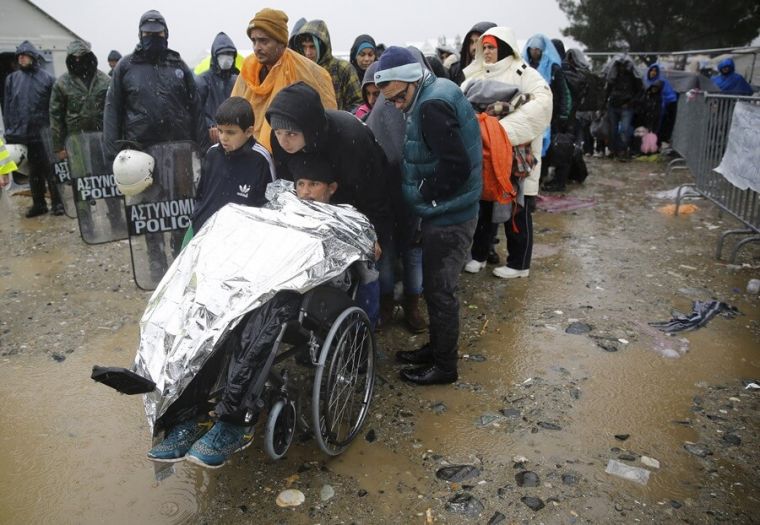Refugees speak out: 'If we stay in Syria, we have 3 choices — serve Assad, or serve ISIS, or die'

As politicians and media commentators the world over debate on what to do with the hundreds of thousands of refugees fleeing war-torn Syria, an important voice is hardly being heard—that of the refugees themselves.
To get the view of the principal characters in this heart-wrenching regional drama, the CBN media organisation launched "Operation Blessing" in Syria to listen to the refugees and to see their condition first-hand. The mission also provides health care, food, basic materials such as utensils, blankets, hygiene kits, and more to the refugees.
Bill Horan, the head of the CBN mission, witnessed the refugee crisis first-hand as he visited Hungary and Croatia where thousands of desperate refugees kept on pouring.
Speaking to a CBN news team afterward, Horan said he talked to the refugees to know the real situation and to find out if it's true that Islamic State (ISIS) militants have blended with the migrants.
"We are certainly only seeing one side of the story, and the side of the story that I keep noticing that is being left out is the story from the perception of the refugees," Horan said.
He said stories about ISIS infiltration cannot be discounted and "it is good that we are aware of these possible problems."
However, Horan said, "The vast majority of these folks, at least the ones that we have interacted with, that we have met, that we have talked to while we were over there, they are not terrorists at all."
Operation Blessing's David Darg took photos of some of the refugees and also talked to them, primarily asking them about the reasons why they had to flee their homeland.
"They said, 'We had three choices,'" Darg told CBN News. "'We could either be conscripted into the Assad regime and fight for [Syrian President Bashar al] Assad, or we have to fight for ISIS, be forced to fight for ISIS, or we can stay there and be killed.'"
The fourth choice was unspoken—brave a hazardous voyage to flee their war-ravaged country and hopefully start a new life in a more peaceful country.
"So, when we see the attacks happening in Paris and all this terror happening around the world, we need to understand that that is the very terror these people are running from, not running towards," Darg explained.
On why there are plenty of young men among the refugees, which leads to suspicion that they could be covert ISIS militants, Horan said he found out one reason for this when he talked to a 27-year Syrian Christian refugee.
He said this Christian told him: "I did not volunteer to leave my home and to come to Germany. I was chosen by the family as the one most likely to make it across nine borders, across a 17-hour ride in a rubber boat from Turkey to Greece."
The unnamed refugee told Horan his family members even pooled their money to be able to send him to Germany to secure his safety.
The refugee told Horan that during the sea voyage, he was "sea sick for 17 hours and I was sure I was going to die."
"We were all praying out loud, praying to the Lord just to get us to the other side," the Christian refugee recounted, adding that many people on the boat with him drowned before they reached land.
Horan said the young men seen in many photos of the refugees are those who have been sent by their families to go on a perilous voyage from Syria to Europe since their families consider them strong enough to survive the ordeal.
Horan said the Syrians are leaving their homeland out of desperation. Still, not everyone is able to flee. That's why he said Operation Blessing isn't just stopping at the border.
"We are actually working inside Syria," Horan told CBN News. "We have got partners that are inside Syria in the north eastern part of Syria, the area that is still safe from ISIS—at least now, because the Kurds are defending that area."
"There are Christians there, Christian Syrians that speak Aramaic, the language of Jesus," he said.











